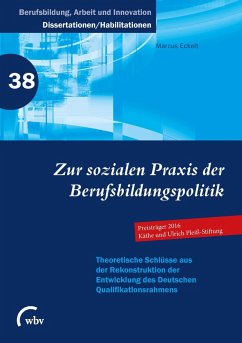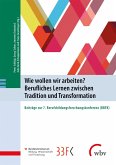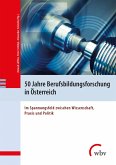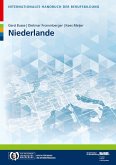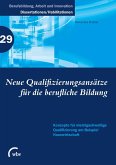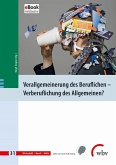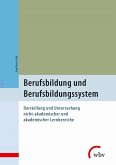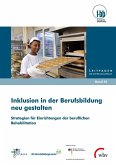Sind Abschlüsse in Berufsbildung, Allgemeinbildung und Hochschulbildung vergleichbar? Ist die Chancengleichheit in der Bildung Realität? Die Untersuchung analysiert die Arbeit, die Ziele, die Kompromisse und die Interessen der Mitglieder des Arbeitskreises Deutscher Qualifikationsrahmen (AK DQR). Ausgehend von der gesellschaftspolitischen Bedeutung der Berufsbildung untersucht der Autor den DQR-Prozess als soziales Phänomen. Auf der Basis leitfadengestützter Interviews zeichnet er einen Aushandlungsprozess mit weitreichenden Konsequenzen nach, der von der Öffentlichkeit kaum wahrgenommen wurde. Im Zentrum der Forschungsarbeit stehen der Entstehungsprozess von Berufsbildungspolitik und das Ringen um die Bedeutung der gefundenen Kompromisse. Die Rekonstruktion der DQR-Arbeit macht sichtbar, wie soziale Ungleichheit in Bildungsabschlüssen durch die Zuweisungsfunktionen des Bildungssystems politisch verarbeitet wird. Das Ergebnis zeigt, wie sich politisches Selbstverständnis schrittweise verändert und neuen gesellschaftlichen Anforderungen Rechnung trägt, wie z. B. der Frage nach der Integration benachteiligter Personen in den Arbeitsmarkt. Are degrees in vocational training, general education, and higher education comparable? Are equal opportunities a reality in education? The study analyses the work, time, compromises, and interests of the members of the German Qualification Framework (AK DQR). Based on the socio-political meaning of vocational training, the author examines the DQR process as a social phenomenon. He uses structured interviews to display a negotiation process that has hardly been recognised by the public but entailed far-reaching implications. The formation process of vocational training policies as well as the meaning of the reached compromises constitutes the centre of the conducted research. The reconstruction of the DQR work indicates how the allocation mechanisms of the German education system process the social inequality in educational qualifications politically. The result explains how political self-understanding changes gradually and takes account of new social requirements, e.g. the task of giving disadvantaged persons access to the labour market.
Dieser Download kann aus rechtlichen Gründen nur mit Rechnungsadresse in A, B, BG, CY, CZ, D, DK, EW, E, FIN, F, GR, H, IRL, I, LT, L, LR, M, NL, PL, P, R, S, SLO, SK ausgeliefert werden.

